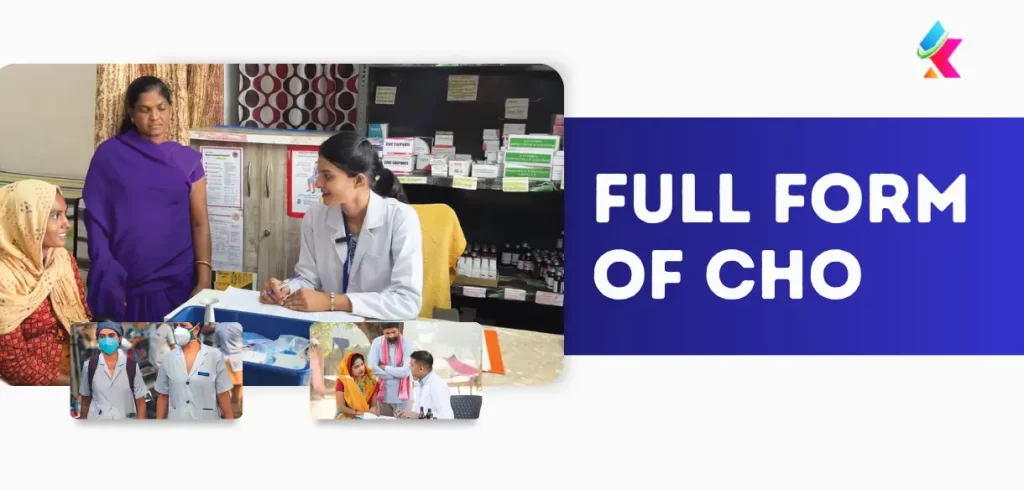Have you ever heard of the term “CHO” and wondered what it stood for? CHO stands for Community Health Officer. This role is of paramount importance, particularly under national health schemes like the Ayushman Bharat Scheme. In areas where qualified doctors are scarce, the Community Health Officer steps in to bridge the gap, delivering healthcare and advice, particularly in rural settings.
Role of CHO in Rural Areas
Why are CHOs so crucial in rural spaces?
Imagine a village where access to medical facilities is limited. That’s where a Community Health Officer shines!
- Running OPDs: They spearhead outpatient departments, offering necessary treatments and consultations.
- Advising Pregnant and Lactating Women: Ensuring that both expecting and new mothers receive proper guidance and care, CHOs are invaluable assets.
- First-aid Services: Before a patient reaches a hospital, a CHO can provide initial treatment, which can sometimes be life-saving.
Increasing Demand for CHOs
Ever since the government launched health missions like the Ayushman Bharat Scheme, the demand for CHOs has skyrocketed. Every Indian state recognizes their value, recruiting them to fortify primary health care services. Think of them as the guardians of grassroots health care!
Eligibility Criteria for CHO
So, do you fancy becoming a Community Health Officer? Here’s what you need:
- Educational Qualifications: A degree in B.Sc Nursing, post-basic B.Sc Nursing, or GNM from an accredited institute is a must.
- Age Limit: Generally, candidates below 35 years are preferred, but age criteria can differ among states.
- Registration and Experience Requirements: Apart from being registered in the state’s nursing council, having two years of experience in the health sector can set you on the path to becoming a CHO.
The Journey to Becoming a CHO
Curious about the path to this noble profession? Here’s a quick breakdown:
- Academic Steps: Post your 12th-grade studies with Physics, Chemistry, and Biology, pursue B.Sc nursing or GNM from a recognized institute.
- Examination and Training: Clear the recruitment exam for CHO in your state. Once successful, gear up for a 6-month intensive training.
- Choice of Health and Wellness Centers: CHOs get the flexibility to select their preferred center, ensuring they can work optimally.
Salary Details
It’s not just about serving society; CHOs also earn a respectable wage. While they receive stipends during training, post-training salaries start from Rs25000. Outstanding performers might even see an additional Rs15000 in their paychecks! However, the salary can vary from one state to another:
- Karnataka: Rs 32000/month
- Madhya Pradesh: Rs 40000/month
- Uttar Pradesh: Rs 25000/month
- Chhattisgarh: Rs 31500/month
Community Health Officer Salary: State Wise Pay Scale Check
“In this segment, we’ll sahre the various pay scales that Community Health Officers might receive on a monthly basis across different states.
| States | Monthly Salary for CHO |
| Maharashtra | ₹30,000 to ₹40,000 |
| Tamil Nadu | ₹30,000 to ₹40,000 |
| Kerala | ₹28,000 to ₹35,000 |
| Uttarakhand | ₹28,000 to ₹35,000 |
| Uttar Pradesh | ₹25,000 to ₹45,000 |
| West Bengal | ₹25,000 to ₹45,000 |
| Karnataka | ₹30,000 to ₹40,000 |
| Punjab | ₹25,000 to ₹45,000 |
| Rajasthan | ₹25,000 to ₹45,000 |
| Jammu and Kashmir | ₹28,000 to ₹35,000 |
| Madhya Pradesh | ₹28,000 to ₹35,000 |
| Assam | ₹30,000 to ₹40,000 |
| Andhra Pradesh | ₹30,000 to ₹40,000 |
| Bihar | ₹25,000 to ₹45,000 |
| Goa | ₹25,000 to ₹45,000 |
| Odisha | ₹30,000 to ₹40,000 |
| Telangana | ₹30,000 to ₹40,000 |
| Gujarat | ₹30,000 to ₹40,000 |
| Manipur | ₹28,000 to ₹35,000 |
The Monthly Average Indian Salary for CHO of other States includes –
- Haryana – ₹28,000 to ₹35,000
- Jharkhand – ₹30,000 to ₹40,000
- Mizoram – ₹28,000 to ₹35,000
- Sikkim – ₹25,000 to ₹45,000
- Chhattisgarh – ₹30,000 to ₹40,000
- Meghalaya – ₹25,000 to ₹45,000
- Arunachal Pradesh – ₹28,000 to ₹35,000
- Tripura – ₹25,000 to ₹45,000
Community Health Officer Salary — Madhya Pradesh Vs. Uttar Pradesh
| Particulars | Madhya Pradesh | Uttar Pradesh |
| Common Exam Name in a State | MP NHM CHO. That is the National Health Mission of Madhya Pradesh. | UP NRHM CHO. That is Uttar Pradesh National Rural Health Mission. |
| Monthly In-hand Salary | A CHO in Madhya Pradesh will earn a remuneration of ₹25,000 every month with an additional incentive of ₹15,000. | A CHO in Uttar Pradesh will be paid a maximum monthly salary of ₹35,000, including an ₹20,500 basic salary with ₹15,000 incentive benefits as a performance reward. |
| Additional Monetary Benefits | The MP NHM CHO post comes with extra perks, grade pay, allowances, and other benefits along with the basic salary. | The candidates for a UP NRHM CHO post can avail of such benefits as an ₹10,000 monthly payment of stipend during the period of training that includes boarding and lodging allowances. They can also help with one-time monetary support for course fees and transportation costs for their apprenticeship curriculum. |
Long-term Benefits and Growth
Dedication has its rewards. If a CHO dedicates six years or completes a tenure, the government might offer them permanent positions. Also, with the conclusion of their tenure, CHOs can ascend in ranks via competitive examinations.
Conclusion
Community Health Officers, or CHOs, are more than just healthcare providers. They’re the backbone of rural healthcare, ensuring that every individual, no matter where they live, has access to quality medical care. Remember, they’re not just officers; they’re community heroes.
FAQs:
What does CHO stand for?
CHO stands for Community Health Officer.
Why are CHOs essential in rural areas?
They provide immediate medical care, run OPDs, and advise pregnant and lactating women.
What qualifications are needed to become a CHO?
A degree in B.Sc Nursing or GNM, registration in the state’s nursing council, and at least two years of experience.
How does the salary of a CHO vary from state to state?
Different states offer different salaries based on their budgets and policies.
Can CHOs choose their workplace?
Yes, they can select their preferred Health and Wellness center during the application process.










